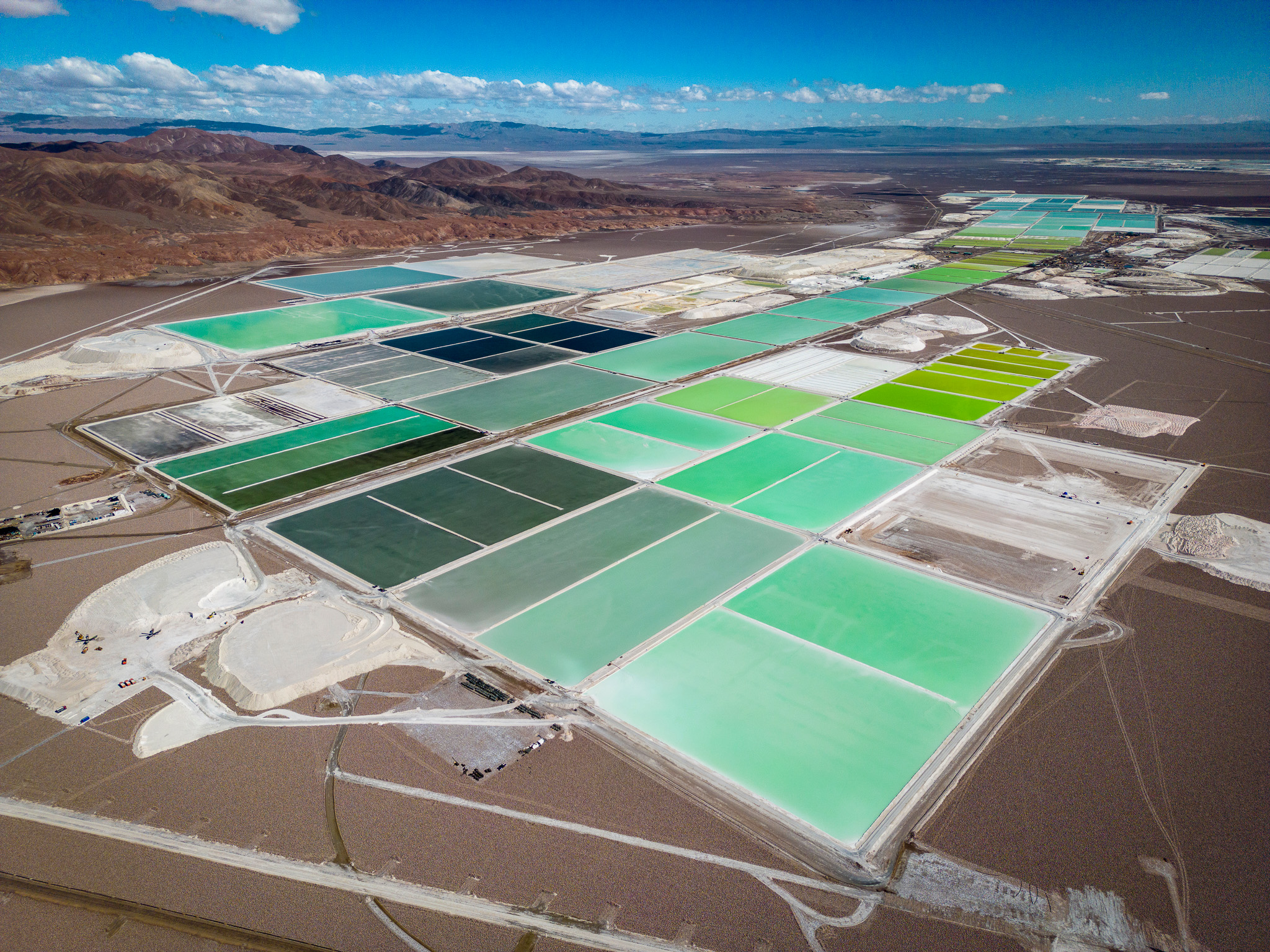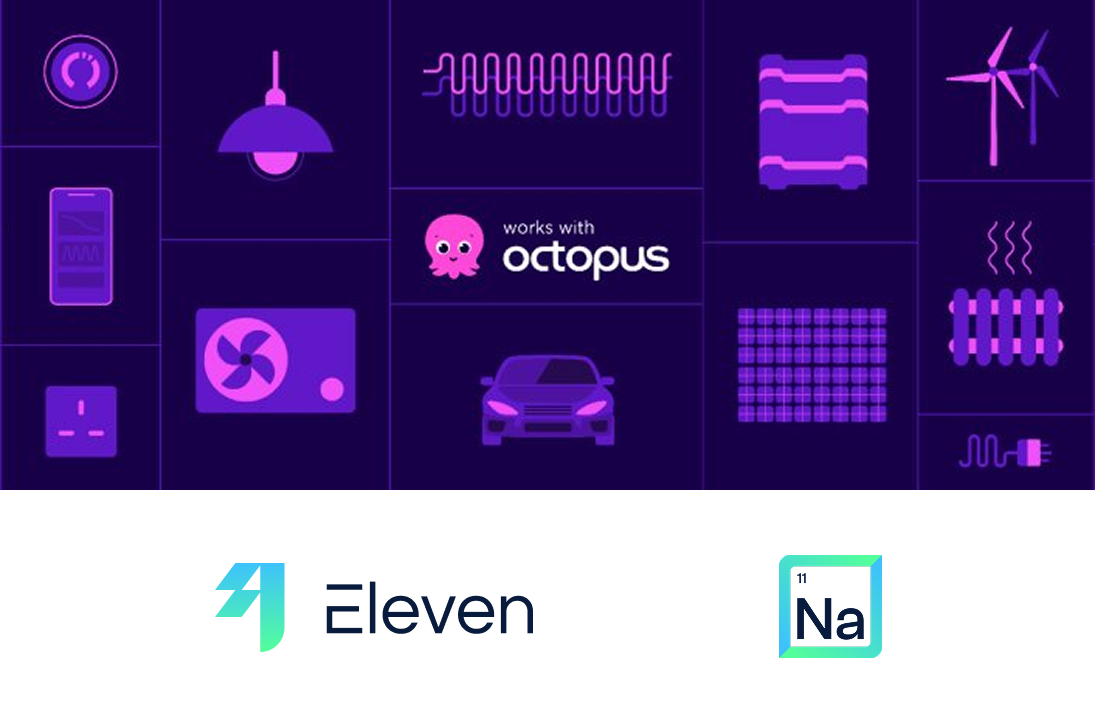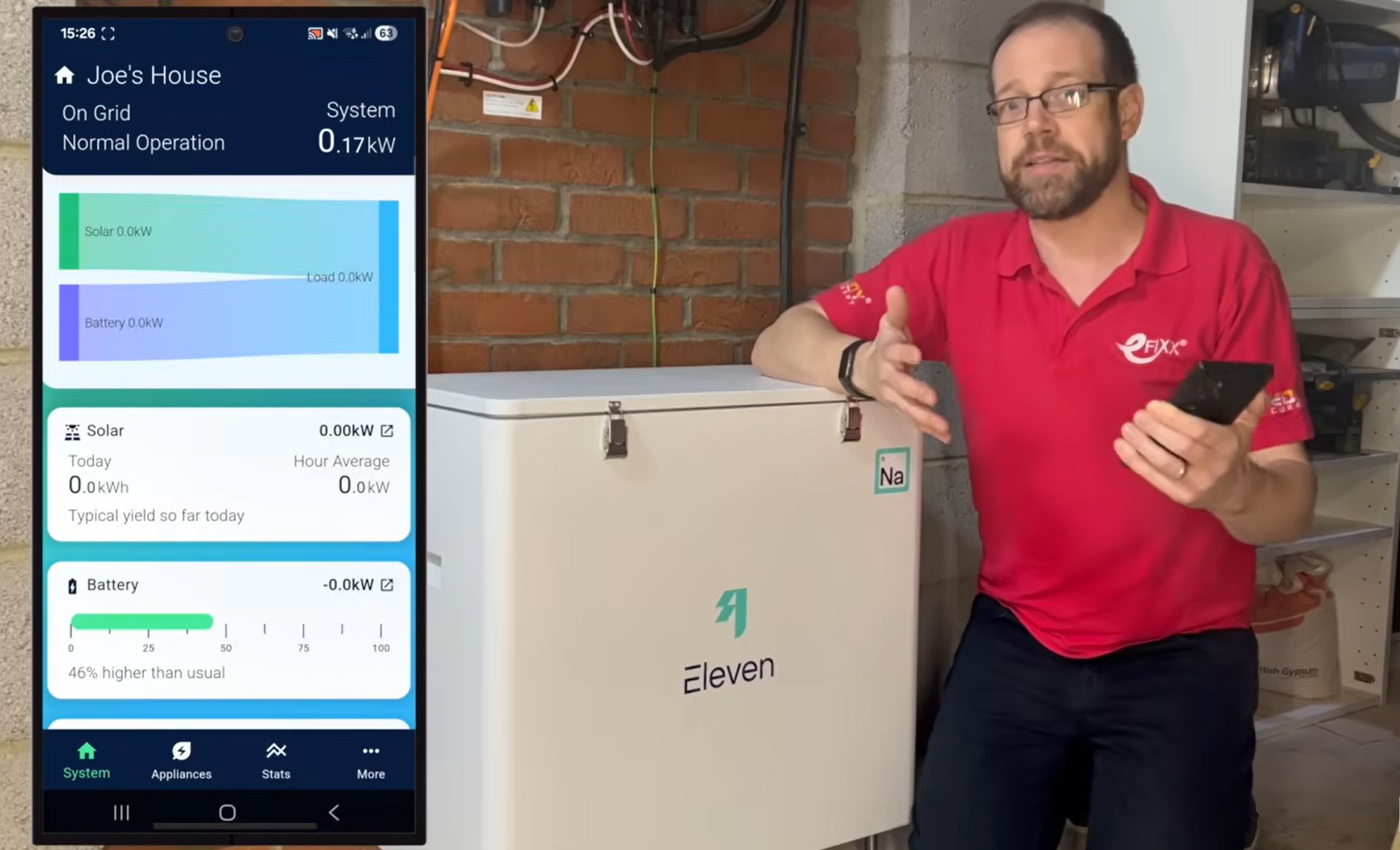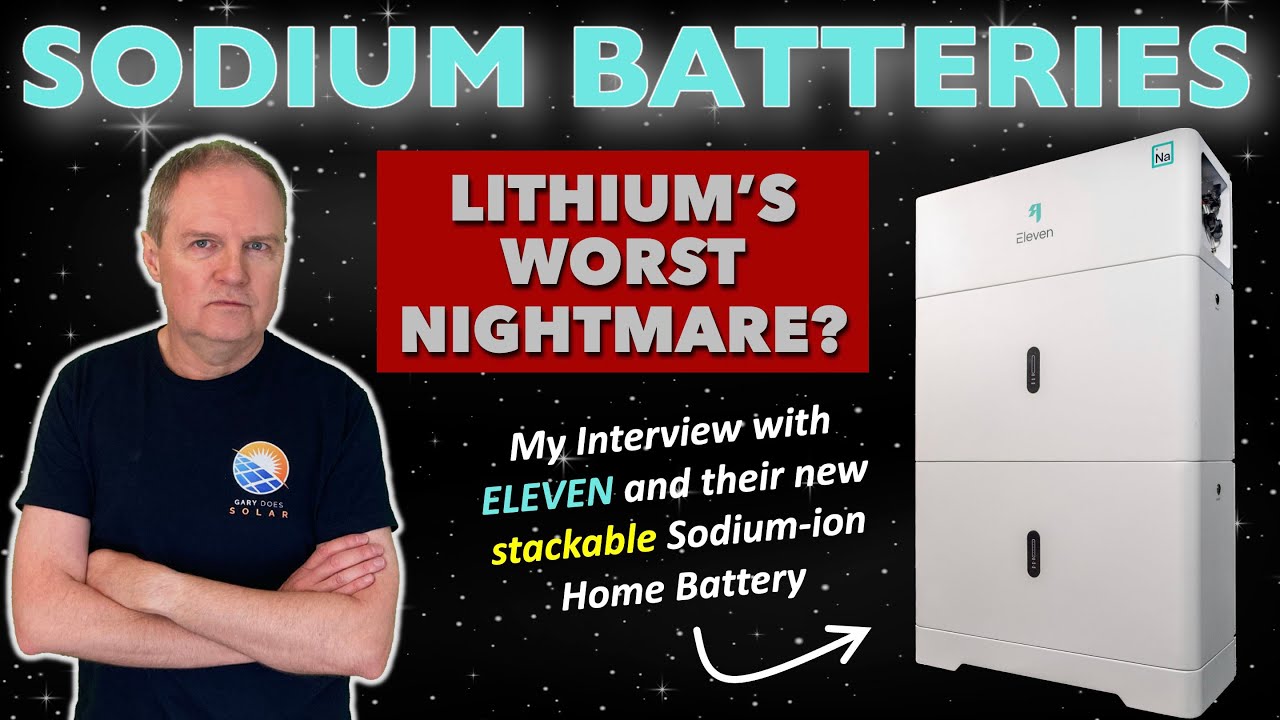Greenest Home Solar Battery
Sustainable Energy Storage with Sodium Battery
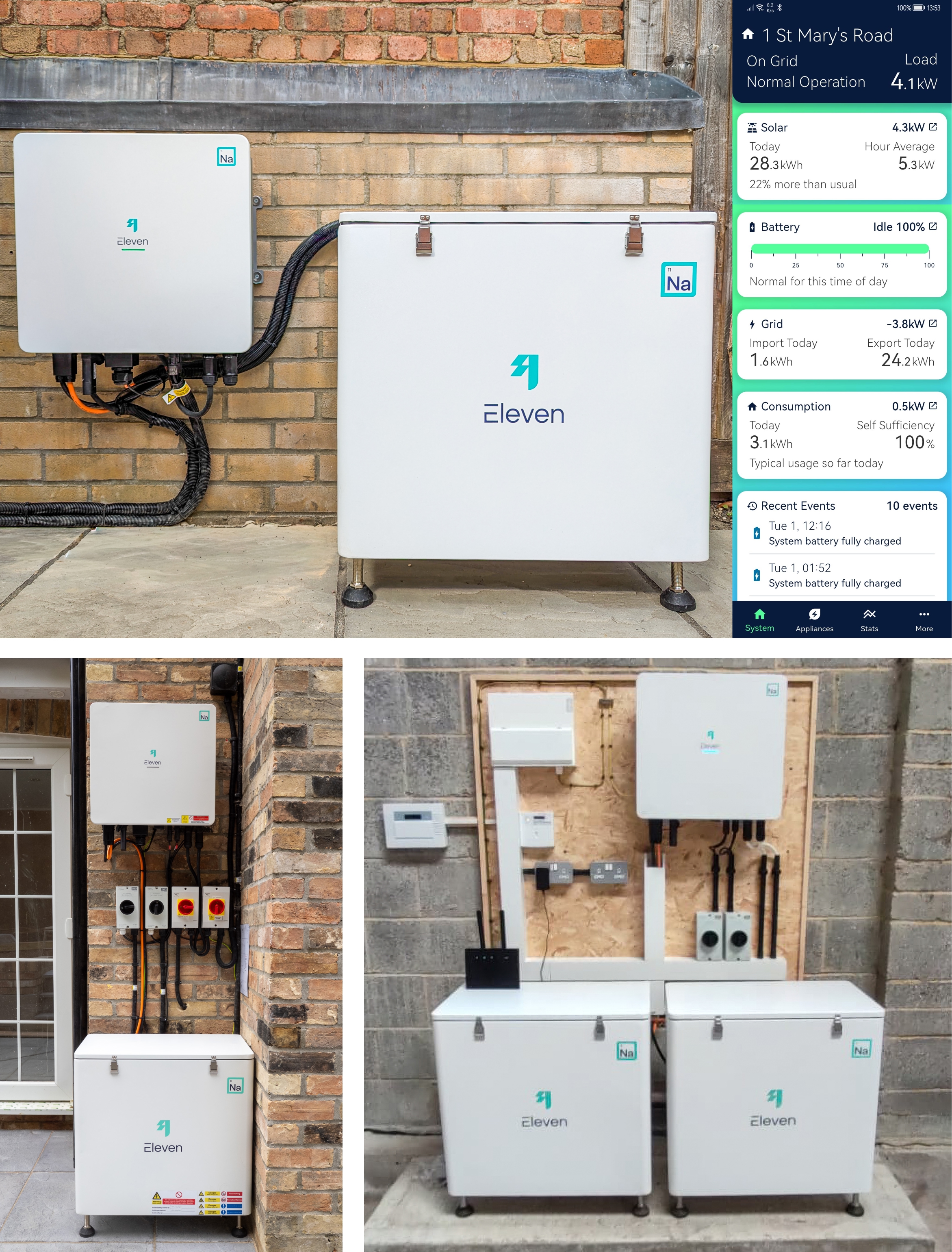




- 9 kW maximum solar power input
- 6 kW continuous power output
- 27.2A maximum output current
- 98% power conversion efficiency
- 95V PV starting voltage
- 2 MPPTs
- 80-550V MTTP voltage range
- 10 ms on/off-grid switchover
- IP65 ingress protection
- Operating Temperature Range: -20°C to 55°C
- Dimension (W x H x D): 500 x 470 x 180 mm
- Weight: 23 kg
- 10-year product warranty

- Depth of discharge: 92% On-grid / 95% Off-grid
- DC/DC round trip efficiency: 95%
- Rated voltage 45V
- Operating voltage: 33V to 59.2V
- Maximum charge/discharge rate: 100 A
- IP20 ingress protection
- Outdoor battery cabinet available
- Operating Temperature Range: -20°C to 55°C
- Dimension (W x H x D): 550 x 525 x 155 mm
- Weight: 54.5 kg
- Up to 8 battery packs (>33.12 kWh usable capacity) can be connected to a single inverter
- 10-year product warranty

- Swift and intelligent commissioning process
- Optimised algorithm for maximum solar yield through solar forecast and intelligent electricity export
- Integrated monitoring of third party devices, such as EV charger and heat pump
- Automatically manage immersion heater based on available solar energy
- Allows AC-couple retrofit to existing PV systems
- Easy access to real-time and historical data on energy production, consumption and storage.
- Allows remote control of settings including charging and discharging schedules and export power limit
- Prevents home battery from discharging to EV
- UK-based secure data hosting
- Compatible with Agile Octopus tariff
- Home Assistant compatible


Products Underdevelopment
Sodium - A Sustainable Alternative to Lithium
Lithium Mining’s Environmental Toll
Water-Intensive Extraction
Lithium mining from underground brines, such as in Chile’s Salar de Atacama, consumes vast amounts of water—over 1.9 million litres per tonne of lithium extracted.
Threat to Biodiversity
Lithium mining disturbs native habitats, threatening both plant species and migratory animals. The use of evaporation ponds in the extraction process alters water tables, impacting surrounding ecosystems.
Impact on Local Communities
Lithium mining drains water resources essential for agriculture and livestock farming, upon which local communities rely. Additionally, lithium and mining waste can contaminate soil and freshwater sources, further endangering local livelihoods.
Soaring Lithium Demand
Driven by the increasing demand for lithium in batteries for EVs and energy storage, the International Energy Agency expects demand for lithium to increase more than 40 times by 2040 if the world is to meet its Paris Agreement goals.

Eco-Friendly Advantage of Sodium Battery
Abundant and Accessible Resource
Sodium is over 1400 times more abundant than lithium. Eco-friendly extraction and processing methods, well-established globally for producing sodium chloride (NaCl) and soda ash (Na2CO3), are already in place. These widely available materials are now being use to create sustainable sodium batteries, offering a more environmentally friendly option in energy storage.
Sustainable Materials for Production and Recycling
- Cathodes: Made from industrial byproducts such as iron oxide and manganese oxide, minimising waste.
- Anodes: Produced from abundant materials like cardboard, straw, or coal.
Environmental and Ethical Benefits
Sodium-based batteries avoid the use of toxic or unethically sourced materials like cobalt, offering a greener and more socially responsible alternative to lithium-ion technologies.


Founded by experts in renewable energy, software engineering and power electronics, our team brings extensive industry experience. With a strong focus on sustainability, innovation, and reliability, we are dedicated to developing cutting-edge energy storage systems and delivering exceptional service.
Midsummer Energy – Our UK distributor and strategic partner in bringing our sodium battery systems to market.
Zinal Growth – Our early stage investor backing our long-term vision for clean energy storage.
Crowdcube – The platform powering our community-driven crowdfunding campaign.
Innovate UK Business Growth – Providing tailored support to scale our innovation through expert guidance and grant funding opportunities.





